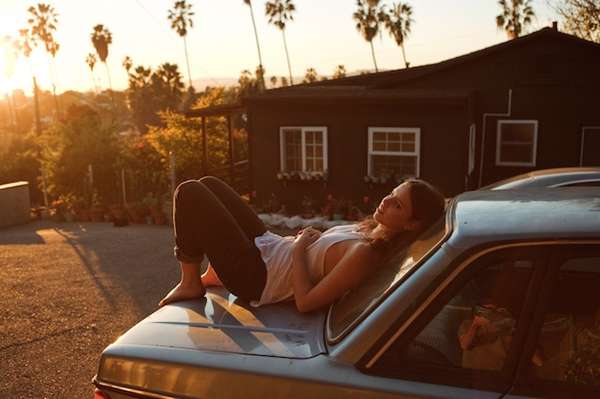This week in Sunday Life: I try the “wilderness effect”
On Thursday I woke up antsy. Sometimes we just do, don’t we. It’s the wind, the moon….the half bottle of wine we drank the night before. Whatever.

I’d had a cold for days and I felt as stale as a pair of pyjamas that have been slept in too long. And just to add to the blah-ness I had to go buy eggs. So I fired myself up, tied on my hiking shoes, grabbed $5 and headed bush. I decided to travel the 5km into town (for the eggs) cross-country – through two farms and a national park, which Google Maps indicated has no walking trails or roads.
Which sounds quaintly Famous Five in theory. But things wound up with me stuck in a quagmire. Literally. The trail-less park turned out to be a swamp and about 2km in I was up to my knees in it, lost and stuck. I sunk back on a mangrove tree in a little sunny patch, picked off a few leeches and thought, Sarah, what are you doing?
I can only say I was trying to de-blah.
Plunging oneself into nature has been well documented as a technique for making life better. And for getting out of a blah-y rut. Psychologists call it the “wilderness effect” and a number of studies show that “green exercise” improves wellbeing and moves us to deep, satisfying realisations that re-set thinking. Watching sunsets, camping under stars, coming face-to-face with a deer in a forest (remember that turning point scene in cult film Stand by Me?) – such experiences have been shown to have a universal effect.
I think I’ve mentioned this before, when I was studying in Canberra in my early twenties I stuck a sign on the back of my door: “Go climb a tree”. It was there to remind me when I got stuck in a study rut to hike up a nearby hill and sit in a eucalypt until I got clear. My brother Pete deals with his blahs by heading into remote forests wherever he might be living (currently the Solomons), erecting a hoochie (how great is that word!) and just sitting out there a few days; my friend Dan takes off riding across continents (breaking Guinness World Records along the way) to reboot his life for the better.
But how does the wilderness effect work? In the past it was about conquering. Man against the elements, finding new lands, controlling and modernising. But recent studies argue that the myriad distractions of nature – rocks to clamber over, spider webs to dodge – shut down tedious ruminative thoughts, forcing attention to the present moment. It posits us powerfully in the now.
A University of Michigan study found that because our senses evolved in nature, by getting back to it we connect more honestly with our sensory reactions. Which connects us with our true selves, and enhances a feeling of “oneness”. Neuroscientists at the Berkeley Social Interaction Laboratory have also found awe-inspiring natural experiences release oxytocin – the hormones that makes us feel warm and fuzzy with others. Ergo, that urge to interrupt a mega natural encounter – arriving at a waterfall or witnessing a spectacular sunrise – to take a photo or tweet the experience back to friends and family.
Yep, that makes sense. But there’s something more to the effectiveness of going bush when things get wobbly. Unlike in Burke and Wills’ day, submerging in nature is about escaping – not garnering – control. Our lives are bogged down by our need to constantly steer and control and schedule. When we go bush two things happen. First, it forces us to fend. In the swamp on Thursday I had to draw on long-forgotten skills and survival acumen to get out (I found a fence and followed it, and swung from tree to tree). It made me feel alive and engaged and wonderfully “off schedule”.
Second, it reminds us of our powerlessness. Nature has a self-organising rhythm of its own that can’t and won’t be controlled. Waves roll, cliffs drop off and rivers flood as perfect conflations of self-organising forces that are bigger than us and more perfect than our feeble attempts to steer things.
Flowers don’t try to bloom. They just do.
In this realisation – in the awareness of our smallness and impotence – we’re made aware that our lives are also a perfect conflation of self-organising forces that can’t be controlled. What sweet relief!
And how perfect that a swamp got me stuck. Allowing me to become unstuck. Ah yes, that’s how nature rolls.
What makes you feel small and humble and alive? Flying in planes can, too, for me.

